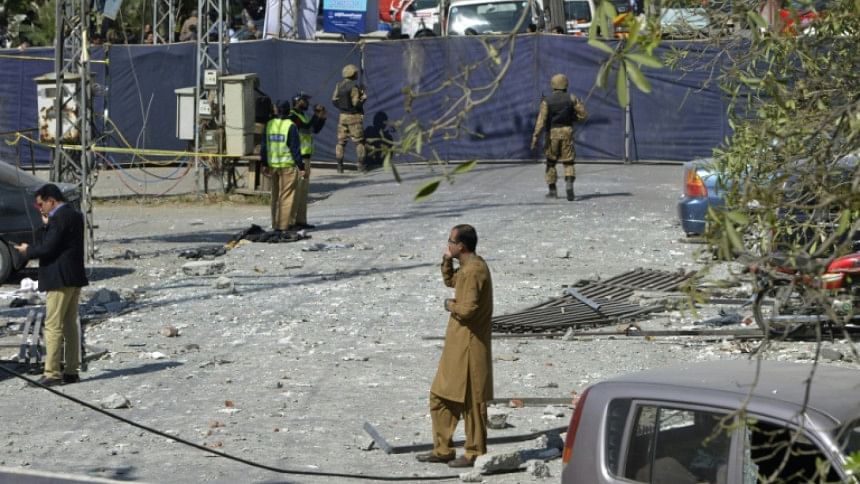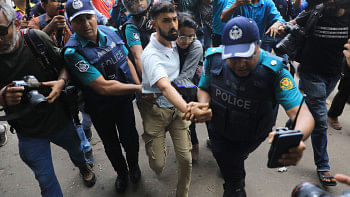6 killed in fresh Pakistan bomb blast

At least six people were killed and 30 injured after a bomb ripped through the Pakistani city of Lahore today, officials said, the tenth attack in just under a fortnight pointing to a resurgence in Islamist violence.
The blast, the second to hit the provincial capital this month, crumpled cars and sent panic rippling through the city after the wave of attacks across Pakistan killed more than 130 people.
"My God, my God, I saw so many bodies," said Imtiaz Ali, a barber in a Tony & Guy hair salon opposite the blast site in the posh Defence Housing Authority suburb of the city, replete with upscale boutiques and cafes.
The building where the bomb went off was under construction in a market crowded with people, including children, the 34-year-old told AFP.
"When I came out I first just saw smoke and dust... Bikes upturned. Cars destroyed. My own colleague's car windows blown out. My clients' cars blown out. I was close to fainting."
Police and administration officials confirmed it was a bomb attack, as rescuers supplied the casualty toll. No group has immediately claimed responsibility.
Just over an hour later rumours of a second blast in another affluent area nearby sent ambulances racing to the scene, though authorities later said the reports were false.
The panic underscored growing nervousness across the country as a series of assaults shook what had been a growing sense of security during a prolonged lull in violence.
They included a previous bomb blast in Lahore on February 13 which killed 15 people, and a devastating suicide attack at a Sufi shrine in Sindh province that left 90 devotees dead.
The attacks, most of which were claimed by the Islamic State group or the Pakistani Taliban, have dented growing optimism over the country's security after it appeared to be making strong gains in its decade-and-a-half long war on militancy.
The emergence of IS and a Taliban resurgence would be a major blow to Pakistan. Analysts have said the apparently coordinated nature of the attacks suggested militants were regrouping.
Military launches new operation
Islamabad launched a crackdown in the wake of the attacks, saying it has killed dozens of "terrorists" in recent days and carried out airstrikes on militant hideouts along the Afghan border.
On Wednesday the military announced a nationwide anti-terrorist operation. Analysts said the military was seeking to limit militants' movements from one place to another.
"This operation will basically target sanctuaries... of militants in Punjab province and restrict their movements," defence analyst and retired general Talat Masood told AFP.
Much of the uptick in security in the past two years has been credited to an earlier military operation targeting militants in Pakistan's tribal areas along the border with Afghanistan, where they had previously operated with impunity.
Pakistan has accused Afghanistan of harbouring the militants who have carried out the most recent attacks. Kabul and Islamabad routinely accuse one another of giving militants safe haven.
Pakistan had vowed to hold the final of its hugely popular Pakistan Super League in Lahore next month despite the surge in violence, promising "head of state level" security for foreign players taking part.
The city, Pakistan's second largest metropolis, was also the scene of an attack on the Sri Lankan cricket team bus in 2009. Pakistan has not hosted high-level visiting teams since then.

 For all latest news, follow The Daily Star's Google News channel.
For all latest news, follow The Daily Star's Google News channel. 



Comments